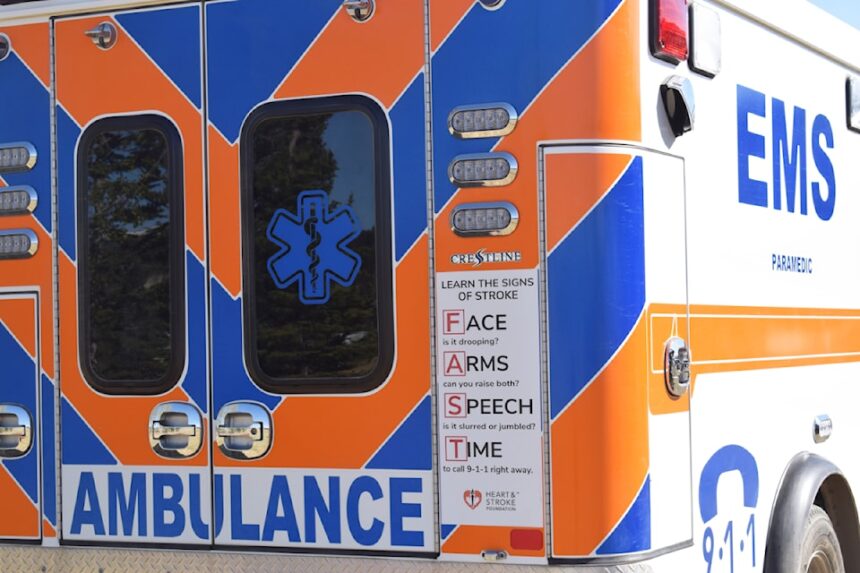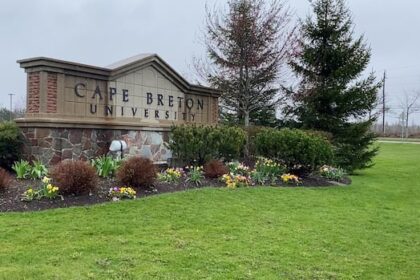Chief coroner says lives lost since February 2020 aren’t unique to Housing First programs The Yukon Coroner’s Service has investigated 20 deaths since February 2020 at the two facilities in the Yukon capital that house Housing First programs: 14 deaths at or in association with the Whitehorse Emergency Shelter and six deaths at 5131 Fifth Ave. Substance use contributed to or caused 18 of those 20 deaths, according to chief coroner Heather Jones. Two people died from natural causes. “The lost lives are not unique to ‘Housing First’ and its programming,” Jones said by email to the News. “Each one holds a story, a story that matters and may also hold the answers to how we can move forward collectively to make a difference to those who continue to be vulnerable to this current crisis/emergency.” The people who have died at Housing First facilities were between the ages of 21 and 59 — “young people who have left big gaps in the lives of their families and communities,” Jones said. “Lost lives that have left the continually widening gaps left by the lost hopes and dreams and unimaginable pain as our communities grieve.” The coroner wasn’t able to break down the deaths by visitors, residents or clients before publication. The shelter has been a key point of contention regarding safety and security within the downtown business and residential community. Premier Ranj Pillai recently called for the upper two floors of the emergency shelter, where the Housing First units exist, to shift to a high-barrier approach, allowing no drugs or alcohol. Jones commented on the families that are breaking due to these preventable deaths, much like the loved ones of the 120 people who have died since April 2016 when opioids first took hold. The Yukon government declared a substance use health emergency on Jan. 20, 2022, in response to a surge in drug poisoning deaths as the territory grappled with a rise in overdoses and a toxic illicit drug supply. Sixteen people died due to substance use and toxicity in 2024. Six have died so far this year, as of April 24, 2025, per Jones. “We still need to pull together as a community and keep working on solutions,” Jones said. “We need to honour the lost lives; abandon judgment; recognize ways we can do better; fully support the service providers who are doing their best to address complex needs in this very challenging time; continue to create communities of support and compassion and look deeply into each lost life.” A third-party evaluation, recently made public in the legislature by the health minister, found that Housing First is well suited to provide affordable, low-barrier housing and help people maintain stable housing. The report suggested some service providers felt they were being unfairly blamed for deaths and overdoses. The Housing First Program offers tenancy to adults experiencing or at risk of homelessness and who may need support for mental health or substance use, as noted in the final report. Thirty-six low-barrier accommodations are offered at two locations: the intersection of Wood Street and Fifth Avenue and 405 Alexander St., in the units above the Whitehorse Emergency Shelter. Connective Support Society, commonly called Connective, operates Housing First with the Council of Yukon First Nations (CYFN) providing cultural programming, according to the final report. The Housing First residence at Fifth Avenue and Wood Street opened in November 2019 and was initially operated by the Yukon government. Connective assumed operation on Feb. 25, 2021, according to an email from Connective’s communications team. Connective took over 405 Alexander St., including the Housing First units on the second and third floors, on Oct. 1, 2022. It was previously operated by the Yukon government, since Jan. 31, 2019. The Salvation Army, which ran the place stretching back to 2017, handed it over to the government after reaching a deal. Chris Kinch, Connective’s vice president of service delivery for the Yukon, said in an email statement to the News that Connective prioritizes hearing from residents, service users and the broader community so it welcomed the third-party review. Kinch appreciated the recognition of the critical need for this service and the broader systemic challenges that shape its delivery. He said the organization remains committed to working with the Yukon government to bolster program outcomes and get residents the support they need to thrive. “Homelessness, trauma, and substance use are complex issues and addressing them is further complicated by issues inherent to the tenancy model that these programs currently operate under,” he said. Kinch commented on the difficult work by staff within the parameters of current program agreements, noting the workers have made a meaningful difference in many people’s lives. “This includes responding to and reversing dozens of overdose incidents, alongside those that, tragically, resulted in lives lost,” he said. “Our staff are deeply affected by each and every such loss but know that this does not compare to the unimaginable grief and pain felt by the family, friends and communities of the deceased.” Reaching Home, Canada’s homelessness strategy, supports the Housing First approach as a “proven approach” to dealing with homelessness, as noted in an email from Housing, Infrastructure and Communities Canada (HICC). “Our thoughts are with every person and family affected by the tragic circumstances in Whitehorse. These losses emphasize the importance of addressing homelessness challenges head on, where they occur, and with every tool available,” reads the email from HICC. “The Government of Canada will continue to work with its partners in every order of government to help ensure that service providers in Whitehorse have the resources they need to connect residents with key housing and homelessness prevention supports.” HICC referred the News to the Yukon Anti-Poverty Coalition, which administers Reaching Home’s territorial homelessness funding in Whitehorse. YAPC executive director Kristina Craig said YAPC doesn’t directly fund Connective to do anything. While YAPC isn’t around the table with the Yukon government and Connective around their expectations, Craig said the coalition is keen to work together on standards of care that are evidence based and meet needs of the vulnerable people they serve. Craig said it’s not fair to expect the Housing First program to be successful without proper resources and staff. Craig suggested that means investing in people — both tenants and staff — to recognize that some peoples’ complex needs “don’t end when you’re housed.” “That is one of the coalition’s responsibilities, that we collaborate and coordinate with everyone who’s a part of this system, including people who use services, so that we do change these systems so that they work for people,” she said. A community-based action plan to address homelessness is in the works, per Craig, who indicated such a plan must involve those offering housing support and funds collaborating and coordinating their actions, including Housing First and the sheltering system. “So that we aren’t doing anything in isolation, and we know what we need, and we’re getting the best people to do the work that they’re best able to do to support what we know is a social determinant of health, and that is housing, and a human right,” she said. Craig said Housing First can be “very successful.” “The worry is that, though, that kind of housing won’t be available to people who need it most because we can’t figure out how to deliver it, and we’re blaming people, instead of blaming the system that is ensuring that people, that programs like this, are not successful.” A spokesperson for the Yukon Health and Social Services department said by email that the Housing First program is intended to offer individuals permanent housing and wraparound support including case planning, wellness services and harm reduction. “The Housing First model is grounded in the belief that housing is a basic human right and that stable housing should come first, before addressing other health or social issues,” the spokesperson said. The health department spokesperson said the Housing First review informed improvements that are currently underway to make for better service quality, tenant support and program oversight. “These include enhancing staffing coverage, increasing supports for wellness and substance use stabilization, clarifying program expectations, and expanding cultural safety training and Indigenous-led programming. The Government of Yukon is committed to continuous improvement and is working closely with our partners to refine the model to better meet the needs of clients and the community,” the spokesperson said. “Every loss is deeply felt. These incidents underscore the urgency of the Substance Use Health Emergency, and the need to continue improving services that support vulnerable Yukoners.” Contact Dana Hatherly at dana.hatherly@yukon-news.com
Thursday, 5 Feb 2026
Canada – The Illusion
Search
Have an existing account?
Sign In
© 2022 Foxiz News Network. Ruby Design Company. All Rights Reserved.
You May also Like
- More News:
- history
- Standing Bear Network
- John Gonzalez
- ᐊᔭᐦᑊ ayahp — It happened
- Creation
- Beneath the Water
- Olympic gold medal
- Jim Thorpe
- type O blood
- the bringer of life
- Raven
- Wás’agi
- NoiseCat
- 'Sugarcane'
- The rivers still sing
- ᑲᓂᐸᐏᐟ ᒪᐢᑿ
- ᐅᑳᐤ okâw — We remember
- ᐊᓂᓈᐯᐃᐧᐣ aninâpêwin — Truth
- This is what it means to be human.
- Nokoma











